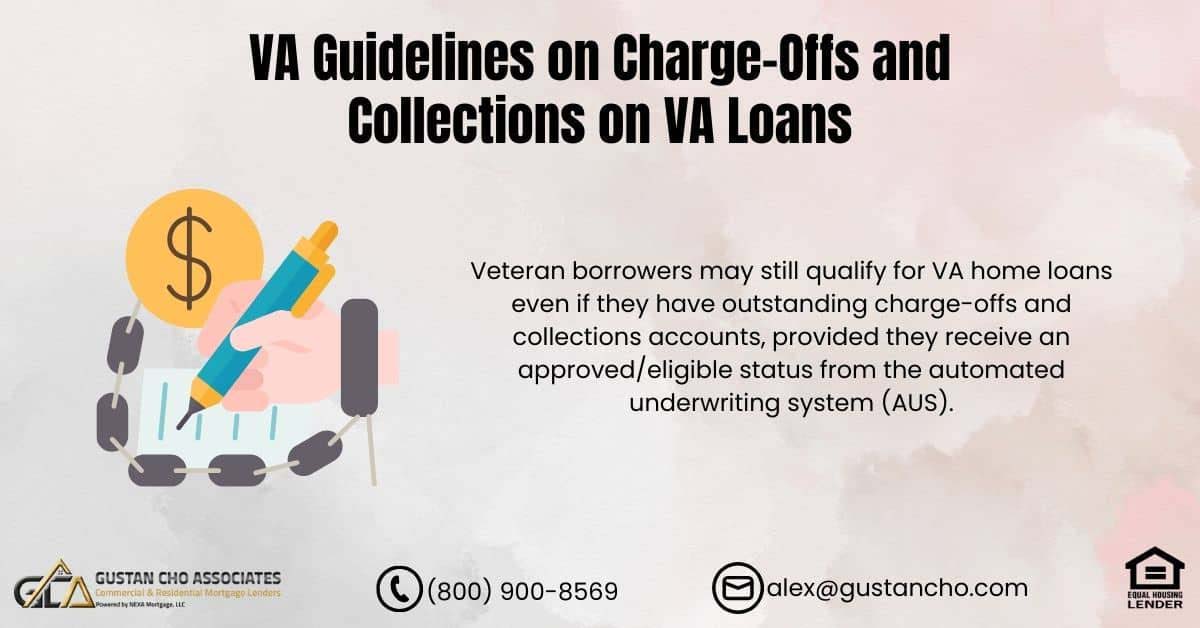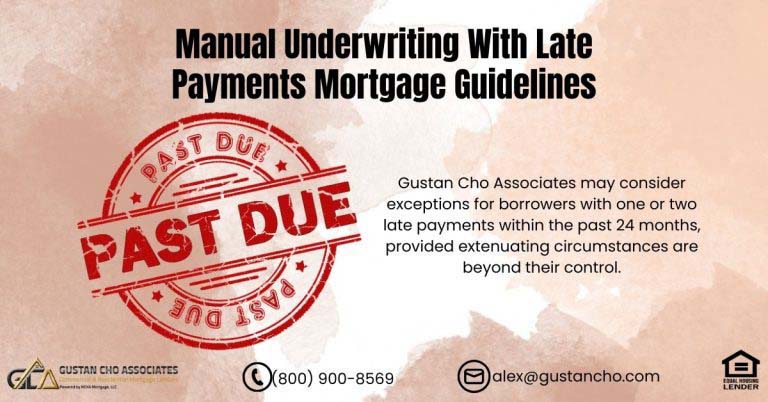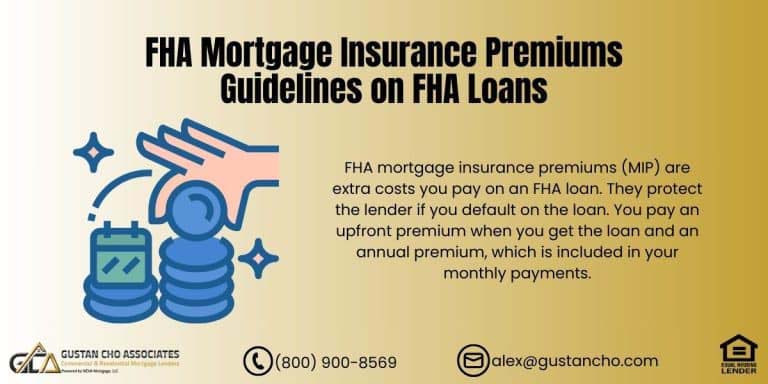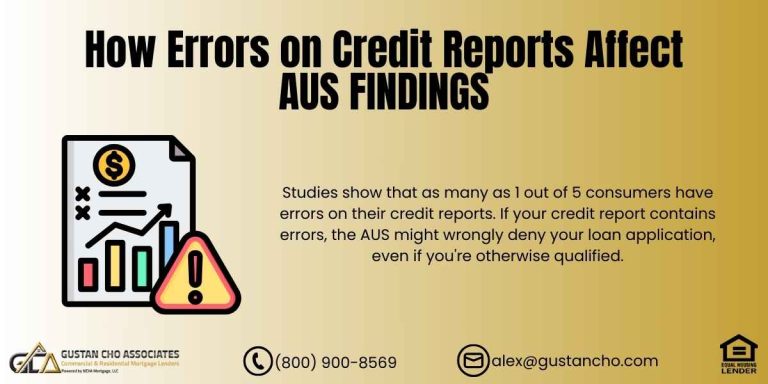This article discusses the revised VA guidelines regarding charge-offs and collections. According to the VA Guidelines on Charge-Offs and Collections, veteran borrowers may still be eligible for VA home loans even if they have outstanding charge-offs and collections accounts, provided they receive an approved/eligible status from the automated underwriting system (AUS).
VA guidelines on charge-offs and collections state that veteran homebuyers do not have to pay outstanding delinquent collection or charged-off accounts.
Differences among VA lenders exist due to varying requirements, as not all strictly adhere to the VA guidelines. Many impose additional conditions, known as VA Lender Overlays, which surpass the basic standards the U.S. Department of Veteran Affairs sets.
However, Gustan Cho Associates, a licensed lender across multiple states, stands out for not having mortgage overlays on VA loans. This distinction ensures a smoother borrowing process for veterans, as they can expect transparent and straightforward lending terms that align closely with the official VA guidelines.
The VA Guidelines on Charge-Offs and Collections are crucial for lenders and borrowers, as they outline the parameters for handling past credit issues like charge-offs and collections. By examining these guidelines, borrowers can better navigate the loan application process. At the same time, lenders can ensure compliance with VA regulations, ultimately fostering a more efficient and equitable lending environment for veterans.
VA Lender Overlays
Not all VA lenders adhere to identical guidelines for VA loans, particularly concerning VA Guidelines on Charge-Offs and Collections. More than 80% of our borrowers at Gustan Cho Associates faced challenges qualifying with other mortgage lenders due to their lender overlays, which often exceed VA guidelines on charge-offs and collections.
It’s important to note that a veteran borrower’s inability to qualify with one lender doesn’t preclude them from qualifying with another. The subsequent paragraph will outline common lender overlays on VA loans.
Lender overlays are additional requirements individual lenders impose on top of VA guidelines, including those related to charge-offs and collections. These overlays may include stricter credit score requirements, lower debt-to-income ratios, or limitations on certain types of properties. Understanding these overlays is crucial for veterans seeking VA loans, as they can significantly impact their ability to secure financing.
At Gustan Cho Associates, we specialize in helping veterans navigate these complexities and find lenders who offer terms aligned with VA guidelines, ensuring they have the best chance of obtaining the financing they need.
Most lenders have VA lender overlays on credit scores. Most lenders require a 620 credit score. VA does not require a minimum credit score requirement.
It is advisable for veterans seeking a loan to maintain a credit score of at least 580 to secure approval via Automated Underwriting System Findings as per VA Guidelines on Charge-Offs and Collections. At Gustan Cho Associates, we adhere strictly to VA guidelines and do not impose additional requirements or minimum credit scores. It’s worth noting that many lenders typically cap the debt-to-income ratio at 41% to 50% DTI.
Unlock your VA loan benefits with no unnecessary restrictions
Discover how to overcome VA lender overlays and apply now for your dream home!
VA Agency Guidelines Versus Lender Overlays
In adherence to the VA Guidelines on Charge-Offs and Collections, it’s common for lenders to request that veteran borrowers address any outstanding collections or charged-off accounts. However, these guidelines also acknowledge that veteran home buyers can only qualify for VA loans if they resolve these issues, as long as it’s not mandated by the Automated Underwriting System (AUS).
This flexibility underscores the VA’s commitment to supporting veterans in their pursuit of homeownership, recognizing that financial challenges may arise but should not necessarily preclude access to favorable loan options.
VA loans stand out for their accommodating approach to mortgage approval, often providing leniency within the agency’s guidelines, especially when assessed through an automated underwriting system (AUS). By prioritizing factors beyond just financial history, such as military service and eligibility, VA loans aim to facilitate homeownership for veterans while ensuring fair and reasonable lending practices.
This reflects the VA’s dedication to serving those who have served their country, offering them opportunities for stable housing and financial security.
How Do The Collections and Charge-Off Processes Work?
Folks who have lost jobs or are experiencing financial difficulties probably cannot pay the minimum debt payments. If the financial situation does not improve in the short term, the chances are that creditors will contact them via telephone or mail, demanding that they catch up. This will most likely continue for the next few months. If the creditor does not get a payment from consumers in four to six months, the creditor will deem the debt as not collectible, and several things may happen:
- Charge-off the debt as bad debt.
- After charging it off, they may sell the debt to a third-party collection agency.
- They may pursue legal proceedings and try to sue the consumer
Charge-Offs, Collections, on Credit Report
First, they will most likely already have reported the consumer to the three credit reporting agencies:
- Transunion
- Experian
- Equifax
How VA Guidelines on Charge-Offs and Collections Affect Credit
According to the VA Guidelines on Charge-Offs and Collections, recent collections and charged-off accounts appearing on consumer credit reports can adversely affect credit scores. When consumers struggle to meet their monthly debt obligations, creditors typically attempt to communicate with them to recover the debt.
Notably, VA loans do not impose a cap on debt-to-income ratios. At Gustan Cho Associates, we do not enforce a maximum debt-to-income ratio requirement for VA loans; instead, we rely on Automated Underwriting System (AUS) findings.
Collection proceedings will start if the consumer cannot pay the minimum payment due on their monthly payments.
Subsequently, creditors may opt to engage a third-party collection agency. These agencies might purchase consumer debts at a fraction of their value or negotiate agreements with creditors, allowing them to collect a percentage of the delinquent debt.
Worried about charge-offs or collections?
VA guidelines can help you qualify—apply now and take the next step toward homeownership!
How Collection Agencies Work
Collection agencies are ruthless and extremely aggressive. Collection agencies will do everything possible to collect on the bad debt. Collection of bad debt is the only way they get paid. If they don’t collect, they do not get paid.
Federal agencies regulate rules and regulations on collection agencies on how they can collect debts. Unfortunately, many collection agencies do not abide by those rules. Many times, collection agencies try to use scare tactics in the collection procedure.
In accordance with the VA Guidelines on Charge-Offs and Collections, collection agencies are known for their relentless and aggressive pursuit of bad debts. Their sole aim is to recover the outstanding debt, as it’s their primary source of income. Should their collection attempts fail, creditors will adhere to the VA Guidelines on Charge-Offs and Collections by writing off the debt and marking it as a charge-off on the consumer’s credit report.
However, consumers must understand that creditors or third-party collection agencies may still pursue payment even after a debt is charged off. Third-party agencies often purchase charged-off debts to pursue collection efforts.
Collection Accounts With Credit Balances and Debt-To-Income Ratios
Borrowers can have charge-off accounts and qualify for VA loans under VA guidelines on charge-offs and collections. However, collection accounts are different. Collection accounts on the credit report.
If the outstanding balance of the non-medical collections is greater than $2,000, lenders need to take 5% of the outstanding balance and use it as a monthly debt.
Under the VA Guidelines on Charge-Offs and Collections, borrowers may still be eligible for VA loans even with charge-off accounts. However, it’s important to note the distinction between charge-off and collection accounts. While charge-off accounts are permissible, collection accounts present a different scenario.
For instance, consider a borrower with a $10,000 collection account balance. The mortgage lender isn’t obligated to settle this amount. Nonetheless, during underwriting, 5% of the $10,000, which equates to $500 per month, will be factored in as a notional monthly debt. This $500 will contribute to the borrower’s monthly payment obligations, thus impacting their debt-to-income ratios. This precaution is due to the potential for open collection accounts to evolve into judgments in the future.
More on Charge-Offs Accounts in the Mortgage Process
Once a creditor charges off debt, that does not mean they gave up on collecting on debt. This does not clear consumers from past debt obligations until the statute of limitations on debt expires. The creditor normally sells charge-offs to third-party debt collectors for pennies on the dollar. These debt collectors now own the paper, and the collection process repeats itself.
Qualifying For VA Home Loans With Outstanding Collections and Charge-Offs
Veteran borrowers can still qualify for VA loans with charge-offs and collections. Borrowers do not have to pay off open collection accounts. We need to work with a lender with no overlays on VA loans. It is not a VA, FHA, or Fannie Mae guideline that borrowers need to have collection accounts paid off.
Many lenders have their mortgage lender overlays requiring collection accounts to be paid off. If this is the case, borrowers have other options.
Gustan Cho Associates Mortgage Group has zero overlays on government and conventional loans. Veteran Borrowers looking to qualify for a VA loan with a mortgage company licensed in multiple states with no lender overlays on government and conventional loans, don’t hesitate to get in touch with us at Gustan Cho Associates at 800-900-8569 or text us for a faster response. Or email us at alex@gustancho.com. The team at Gustan Cho Associates is available seven days a week, evenings, weekends, and holidays.
FAQ: VA Guidelines on Charge-Offs and Collections on VA Loans
-
1. What are the revised VA Guidelines on Charge-Offs and Collections?
According to the VA Guidelines on Charge-Offs and Collections, veteran borrowers may still qualify for VA home loans even if they have outstanding charge-offs and collections accounts, provided they receive an approved/eligible status from the automated underwriting system (AUS).
-
2. Do veteran homebuyers need to pay outstanding collection or charged-off accounts?
No, under VA guidelines, veteran homebuyers are not required to pay outstanding delinquent collection or charged-off accounts.
-
3. What are VA Lender Overlays, and how do they affect borrowers?
VA Lender Overlays are additional requirements imposed by individual lenders on top of VA guidelines. These overlays may include stricter credit score requirements, lower debt-to-income ratios, or other limitations. Gustan Cho Associates stands out for not having mortgage overlays on VA loans, ensuring a smoother borrowing process for veterans.
-
4. How do VA Guidelines on Charge-Offs and Collections impact loan approval?
These guidelines outline parameters for handling past credit issues like charge-offs and collections, helping borrowers navigate the loan application process while ensuring compliance for lenders.
-
5. What are common lender overlays on VA loans?
Lender overlays may include requirements such as higher credit score minimums or lower debt-to-income ratio limits. Understanding these overlays is crucial for veterans seeking VA loans, as they can significantly impact their ability to secure financing.
-
6. How do collection proceedings typically unfold?
If consumers are unable to pay their debts, creditors may eventually charge off the debt or sell it to third-party collection agencies, which may pursue legal action or engage in aggressive collection tactics.
-
7. Can borrowers qualify for VA loans with outstanding collection accounts?
Yes, borrowers can still qualify for VA loans with outstanding collections. They are not required to pay off open collection accounts, especially when working with lenders like Gustan Cho Associates that adhere strictly to VA guidelines.
-
8. What happens to charge-off accounts in the mortgage process?
Even after a creditor charges off debt, consumers are still responsible for the debt until the statute of limitations expires. Creditors often sell charge-offs to third-party debt collectors who continue collection efforts.
-
9. Do borrowers need to pay off collection accounts to qualify for VA loans?
No, it’s not a VA, FHA, or Fannie Mae guideline that borrowers need to have collection accounts paid off. While some lenders may require this, borrowers have other options, including working with lenders like Gustan Cho Associates that don’t impose such requirements.
-
10. How can borrowers ensure they qualify for VA loans under these guidelines?
By understanding VA guidelines on charge-offs and collections and working with lenders who prioritize adherence to these guidelines, borrowers can increase their chances of qualifying for VA loans and obtaining favorable financing terms.
This blog about VA Guidelines on Charge-Offs and Collections on VA Loans was updated on February 16, 2024.










